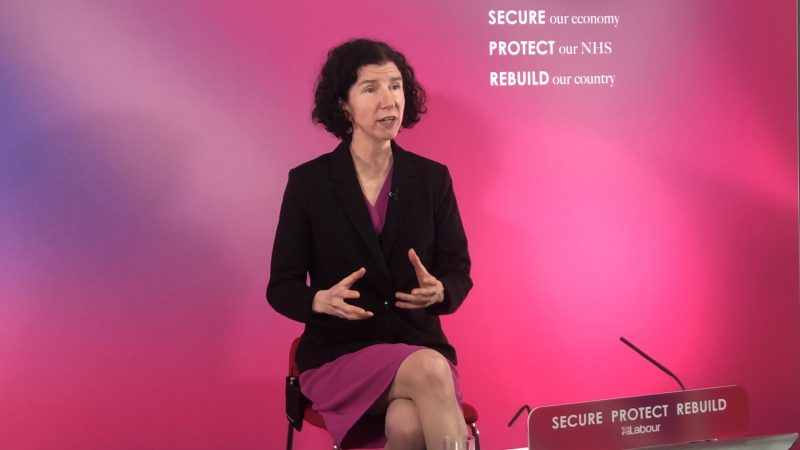
Labour’s Anneliese Dodds has used a Fabian Society event appearance about this week’s Budget to warn that the UK Conservative government “shouldn’t be pinning all its hopes on a particular escape route from this crisis”.
The Shadow Chancellor reminded attendees that Labour had demanded an extension of furlough to protect jobs as long as coronavirus restrictions are in place, as well as new “smart” additions to the scheme.
Rishi Sunak announced in the Budget on Wednesday that the coronavirus job retention scheme would be extended it until September, which goes beyond Boris Johnson’s current roadmap for lifting Covid restrictions.
But Dodds argued today that this timeframe was not sufficient, saying: “We all hope we’ll be out of restrictions when it comes to September. But… we could see localised restrictions being put into place again.”
She suggested that if the Chancellor had been clear that he would have maintained the furlough support for the duration of Covid restrictions, rather than until September specifically, it would have helped to build confidence.
The Labour frontbencher also criticised Sunak for assuming that there would be a “big boom” when Covid savers rush to spend, yet “most people who have saved have not said they will immediately be spending that money”.
The argument that those who have managed to save during the crisis, due to being furloughed or working from home and not spending as much on leisure activities, will not necessarily spend those savings at once was the basis for Labour’s recovery bond proposal.
Dodds also highlighted that the Chancellor took no action on disability-related benefits, which have not been uprated during the pandemic unlike Universal Credit, although many shielders have incurred extra costs.
She described the corporation tax rise in 2023 as a “handbrake-style turn from the Conservatives” and suggested it should have been implemented gradually, rather than jumping from 19% from to 25% in two years’ time.
The Shadow Chancellor warned that firms with profits big enough to be subject to the corporation tax increase may hold back investment until 2023, when the new ‘super deduction’ will allow them to claim 130% of machinery costs as a tax cut.
On the tax-free personal allowance freeze, Dodds said increasing the threshold traditionally benefits highest earners most, though Labour is “very well aware” that the freeze will take place “at the same time as other pressures”.
Dodds said her opposite number in government “should have faced up to” upcoming pressures such as “a big backlog hitting our NHS after the Covid crisis” and argued that Sunak’s plans are “driven by the electoral cycle, not the economic cycle”.




More from LabourList
‘Labour’s quiet quest for democratic renewal’
‘Labour promised to make work pay. Now it must deliver for young people’
‘Council Tax shouldn’t punish those who have the least or those we owe the most’